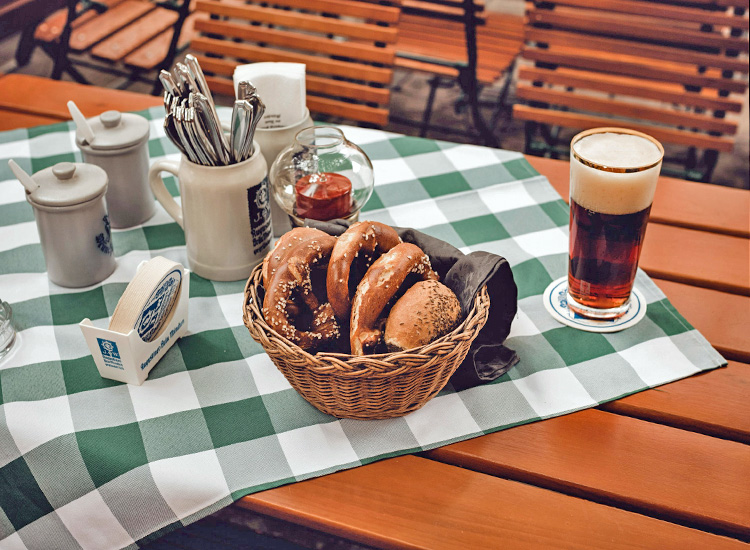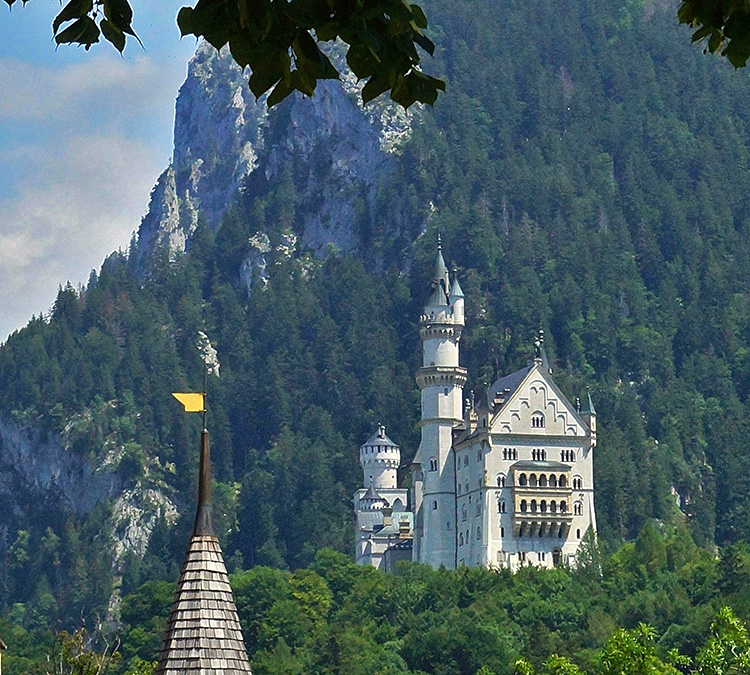Exploring German Culture: Beyond Oktoberfest's Beer Tents
[back to Germany Index]
Most people certainly associate Germany with Oktoberfest's beer and lederhosen. However, whilst these aspects are a great way to delve into Germany's vibrant culture, they are just a teaser of the rich tapestry that comprises the country's heritage and traditions. Germany's cultural landscape is rich and varied, encompassing everything from classical music and literature to modern art and innovative cuisine.
 Munich, Germany
Munich, GermanyBeyond the beer tents of Oktoberfest, you will find a country steeped in history, with medieval castles, charming villages, and bustling cities that all tell their own stories. This article will take you on a journey beyond the beer tents at Oktoberfest and into the heart of Germany's cultural landscape, revealing the depth and diversity of its traditions and customs.
The Keeping of Tradition and Modernity
Germans have perfected the art of balancing tradition and modernity, preservation and liberation. Simply looking at their architecture evidences this; in urban areas, centuries-old structures coexist with state-of-the-art modern designs. This blend creates a delightful juxtaposition that is both visually and culturally enriching. Take Berlin for instance, a city damaged during World War II, yet today stands as a symbol of unity and displays a fascinating dichotomy between the past and the future. Here, historic landmarks like the Brandenburg Gate stand alongside cutting-edge buildings like the glass-domed Reichstag, showcasing Germany's remarkable ability to honor its history while embracing progress.
 German cuisine
German cuisineFood in Germany: More Than Just Sausages and Beer
Whenever German cuisine is mentioned, images of sausages, pretzels, and beer often come to mind. Though these are indeed integral to German culture, they only represent a minor aspect of its diverse and regional food culture. From Sauerbraten (pot roast) in the Rhineland to the fish dishes of the northern coastal regions, Germany's culinary culture is as diverse, rich, and robust as its people. Additionally, the variety of bread and pastries, including the famous Black Forest cake, highlights the country's baking prowess. Vegetarian and vegan options are also increasingly common on German menus, reflecting a nod to the evolving food culture and the nation's growing focus on sustainability and health.
The Importance of Music and Literature
Germany's contribution to the world of music and literature is nothing short of noteworthy. Home to classical music maestros like Beethoven, Bach, and Mozart, the country also nurtured literary giants such as Herman Hesse, Thomas Mann, and the well-known Brothers Grimm. Today, cities like Leipzig, Berlin, and Munich are filled with concerts, literary festivals, and a thriving independent bookstore scene, encapsulating the continued passion for literature and music. This vibrant cultural landscape ensures that Germany remains a beacon for both historic and contemporary artistic expression, celebrating its rich heritage while fostering new talents.
Art and Architecture
Germany's art and architectural history is one of the most diverse and enduring in Europe. From Gothic cathedrals and Baroque palaces to Bauhaus and modern architecture, the country offers an educational feast for art and architecture enthusiasts. Landmarks like the Cologne Cathedral and Neuschwanstein Castle showcase Germany's historical grandeur, while the minimalist lines of Bauhaus buildings reflect its pioneering spirit in modern design. Simultaneously, Germany’s avant-garde art scene, particularly vibrant in Berlin’s numerous galleries, adds a layer of contemporary flair to their rich artistic history.
 Germany
GermanyOutdoor Culture
Venture beyond Germany's urban centers and you will discover an impressive and diverse landscape. The stunning Alps in the south, the scenic lakes of Brandenburg, and the coastal beaches of the North and Baltic Seas all contribute to Germany's exceptional outdoor culture. Germans adhere deeply to their tradition of 'wanderlust,' a desire for exploration and hiking, which facilitates a definitive connection with nature. This strong bond with the outdoors is reflected in the numerous well-maintained trails, national parks, and recreational areas that invite both locals and visitors to immerse themselves in the country's natural beauty.
The Value of Community, Environment, and History
The last aspect of German culture worth exploring is their respect for community, environment, and history. Germans take pride in their history and the lessons learned from it, ensuring that past experiences shape a more conscientious future. Environmental consciousness is ingrained in their ethos, demonstrated through efficient recycling systems and renewable energy-powered infrastructure, making Germany a leader in sustainability. Additionally, strong community bonds are evident in local festivals, community-based sports clubs, and shared gardens, where people come together to celebrate, support, and enhance their collective well-being.
In conclusion, while one should not dismiss the immense joy of frothing beer mugs at Oktoberfest, there is so much more to Germany than bratwurst and beer. The saying "travel broadens the mind" holds true when exploring Germany; venturing beyond the typical tourist routes can reveal a rich cultural tapestry that blends tradition, modernity, and continuous evolution. Discovering Germany's diverse heritage offers a deeper appreciation of its vibrant history, innovative spirit, and enduring cultural contributions.
More ...
Do you have feedback, a comment or correction? Let us know
